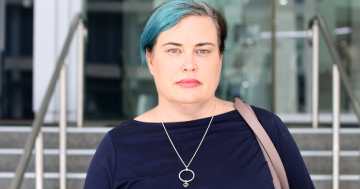 Consumer Protection and WA Police are raising the alarm after an increase in reports of teenagers and young adults being targeted in ‘sextortion’ scams.
Consumer Protection and WA Police are raising the alarm after an increase in reports of teenagers and young adults being targeted in ‘sextortion’ scams.
The victims, who are approached on social media platforms by scammers using fake profiles, are tricked into recording or sending sexually explicit videos and photographs.
Then come threats to post the intimate images on the internet and send them to family, friends, partners or employers, unless money is paid.
Commissioner for Consumer Protection Gary Newcombe said, apart from the monetary losses, those targeted suffer great emotional distress.
“The threat to have intimate images exposed publicly has a devastating impact on all of those targeted, even those who don’t pay, but younger people are particularly vulnerable,” Mr Newcombe said.
“The ruthless scammers put their victims in a highly embarrassing situation, being made to believe that their lives could be ruined if the images are posted or shared on social media, or sent to family, friends, partners or work colleagues,” he said.
“It’s important that people who are being blackmailed don’t send any money as the demands will only escalate.”
Mr Newcombe says victims should get confidential advice from WA ScamNet at Consumer Protection or WA Police who can outline practical steps to take to help in.
WA ScamNet and WA Police have issued the following advice to people who might be targeted:
* DO NOT SEND ANY MONEY! If you do, the scammers will come back for more.
*Contact WA ScamNet at Consumer Protection on 1300 30 40 54 or Crimestoppers on 1800 333 000 to seek help.
* If the video or photographs are uploaded/posted on sites such as Facebook or YouTube, report them immediately to the administrators by flagging them as inappropriate. They should be taken down quickly.
* Take note of profile names as these will also need to be reported to the social media platform administrators.
* Block the scammer and delete them from your friends’ list on social media. Do the same if they have your email address or mobile phone number.
* Deactivate social media accounts for two weeks so the scammers will think you have deleted your accounts.
* If you meet someone online, avoid letting them have intimate photos or videos. Even if they are not a scammer, there are still risks.
* Parents should discuss cyber safety with their children and ensure proper parental controls are in place.
Mr Newcombe said blackmail attempts involving intimate images of anyone under the age of 16 should be reported to the Child Abuse Squad via Crimestoppers on 1800 333 000.
More information about scams is available on the WA ScamNet website where online scam reports can be lodged and enquiries can be made by email [email protected] or phone 1300 30 40 54.











